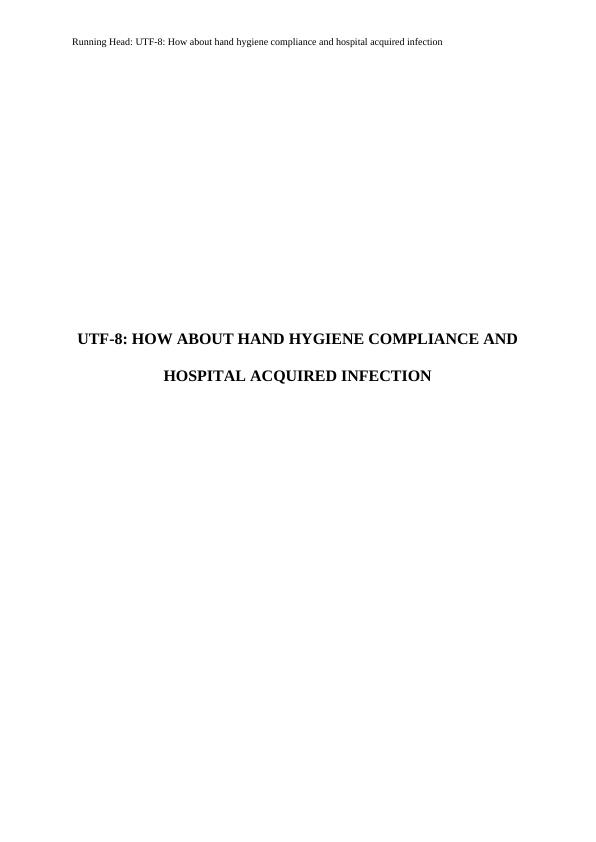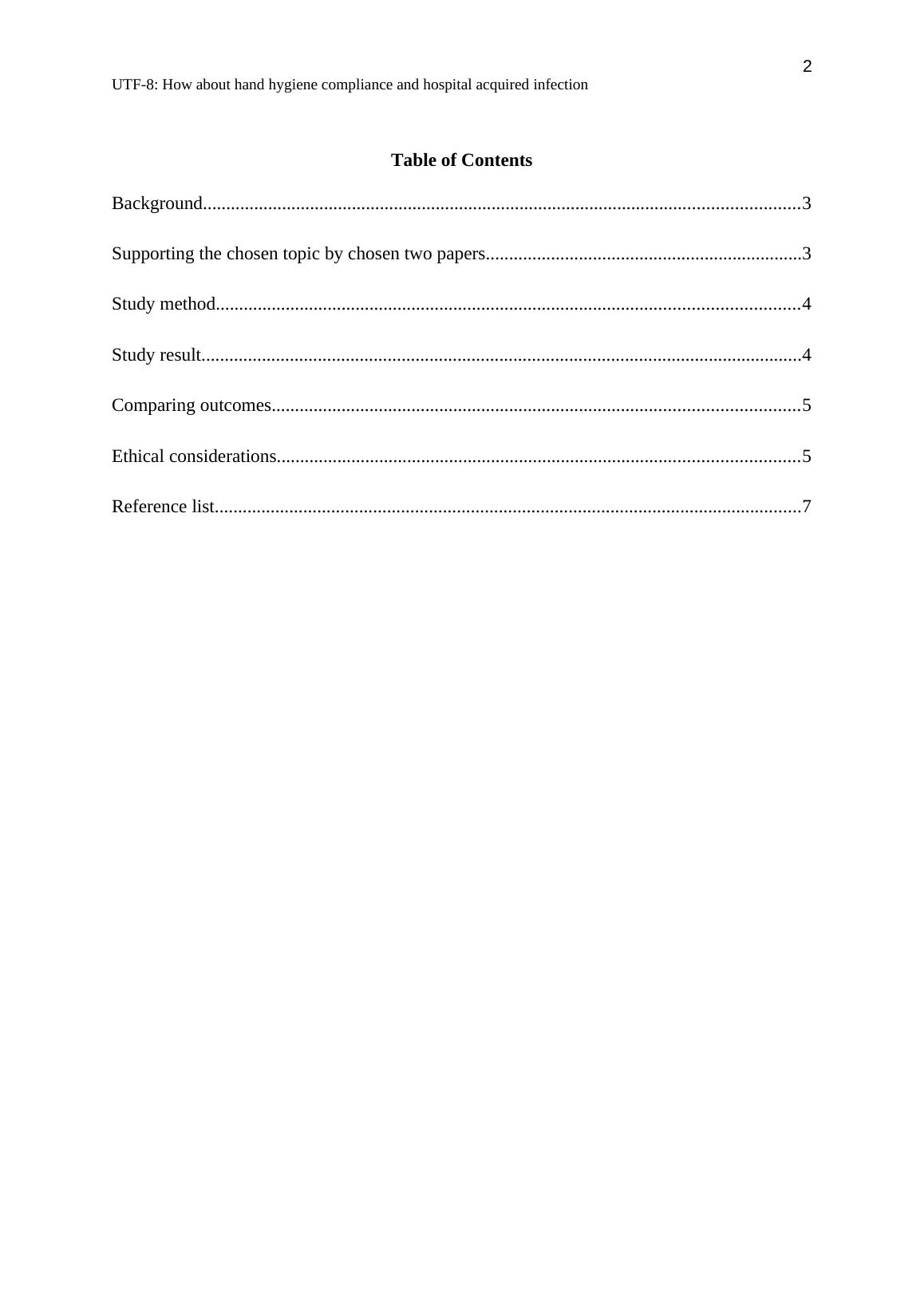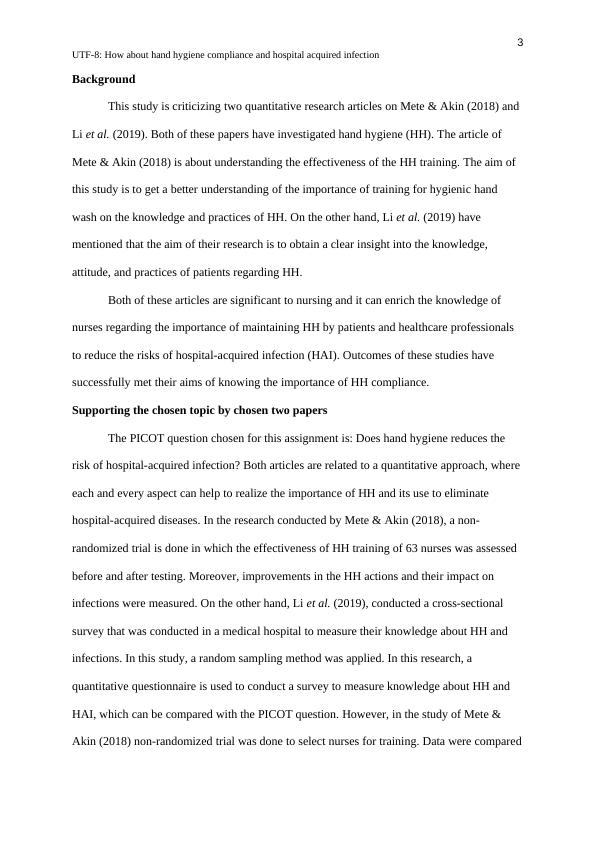Effectiveness of The HH Training
8 Pages1907 Words12 Views
Added on 2022-09-12
Effectiveness of The HH Training
Added on 2022-09-12
ShareRelated Documents
End of preview
Want to access all the pages? Upload your documents or become a member.
Article Analysis and Evaluation of Research Ethics
|5
|1378
|135
Hand hygiene and hospital acquired infections.
|9
|2182
|12
Hand hygiene and healthcare-associated infections: A critical analysis of literature
|13
|2629
|471
Impact of Hand Hygiene on Infection Rate in Hospitals
|16
|3918
|161
A critical analysis of knowledge gaps in hand hygiene among nursing professionals
|10
|2611
|471
Hospital Acquired Infection and Nursing Interventions
|3
|2138
|205



